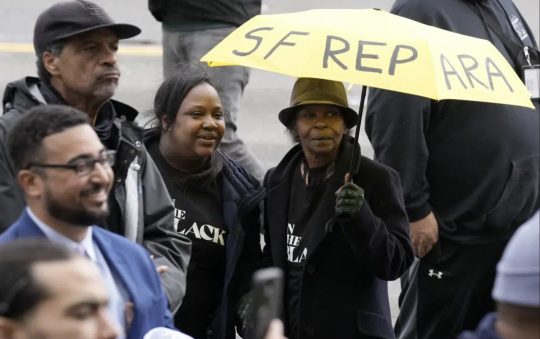
Killing is wrong. Killing Black people because they are Black is even more wrong. Lynching Black people is exponentially wrong. So why was I opposed to the state-imposed killing of John William King, the despicable murderer of James Byrd, Jr.? I happen to think that there are worse things that can happen to you than death. The now 44-year old King could have gotten a sentence of life in prison and lived miserably there for the rest of his life. In some ways, death is salvation for him. Imagine being relatively healthy with nothing to look forward to? Just sitting there, in jail, surrounded by the Black people your white supremacist self purports to hate. That might be torture worse than death.
James Byrd, Jr. was dragged for almost three miles near Jasper, Texas in 1998. John William King and two other men (one whose death penalty sentence was carried out in 2011, another who was sentenced to life in prison) were found guilty one of the most horrific hate crimes in modern US history (Black men were also burned alive in the heyday of lynching). Mr. Byrd’s family was present at the execution in Huntsville, Texas. Byrd’s sister, Clara Taylor, noted that the murderer, who maintained his innocence, showed no remorse when he was convicted, and showed none when he was executed. He never acknowledged, and never looked at James Byrd, Jr.’s family.
Does a man whose body sported disgusting tattoos, including, according to one news source, “one of a black man with a noose around his neck hanging from a tree” deserve the death penalty? I say no. Keep that filth alive and keep him miserable. His execution creates a martyr for white supremacists. Had he lived he would have evolved into nothing more than pitiful irrelevance. The death penalty has been abolished in 20 states, with moratoriums on executions in other states, most recently in California, thanks to Governor Gavin Newsome. It ought to be abolished nationally.
According to the Death Penalty Information Center (https://deathpenaltyinfo.org/documents/FactSheet.pdf), nearly 1500 people had their death sentences carried out between 1976 and now. Despite the fact that African Americans are just 13 percent of the nation’s population, we were more than a third of those executed after receiving a death sentence. People who killed white people were far more likely to get the death penalty than people who kill Black people. There are racial biases replete in the application of the death penalty, with numerous studies supporting the many ways the death penalty is unfairly awarded. According to the Death Penalty Information, as an example, Washington state jurors were “three times as likely to recommend a death sentence for a Black defendant than a white one.” In Louisiana, someone who killed a white person was nearly twice as likely to get the death penalty as one who killed a Black person. The death penalty is applied through a racial lens – based on the race of the criminal and the race of the victim.
From that perspective, the man who murdered James Byrd, Jr. committed a crime so egregious that jurors acted contrary to the statistics, voting to apply the death penalty to an avowed racist white man who participated in the brutal murder of a Black man. But I am frequently reminded of the 1920 Tulsa, Oklahoma lynching of Ray Belton, an 18-year old white man who shot a taxi driver. Though Belton confessed to his crime and said it was “an accident,” he was denied the due process of a trial and conviction. After his lynching, a Black newspaper editor opined that if a white person could be lynched, so could a Black person. A year later, the attempted lynching of the Black shoeshine “boy” Dick Rowland because of the false accusation that he assaulted the white elevator operator Sarah Page, was the spark that led economically envious whites to destroy the Greenwood (Black Wall Street) section of Tulsa.
This walk down history lane is extremely relevant to the present. If we could execute the white murderer of James Byrd, Jr. (I try not to mention the names of devils more than is necessary), we can execute a Black person accused of something, whether they did it or not. Applying the death penalty erodes our humanity, whether the accused is guilty or not.
I think it is far more appropriate to let a reprobate like James Byrd Jr.’s killer simmer in his repugnance. If he had lived his life in prison, with no hope, no help, no possibilities, that would have been a greater punishment than death. While I respect the Byrd family and ache with them at the gruesome murder of James Byrd Jr, I would prefer a punishment for racist murderers that is both humane and inhumane. We don’t execute them because we don’t stoop, as a society, to the level of committing a crime we abhor. We ignore them and exacerbate their misery be reminding them that they have no hope of release.
The death penalty is inhumane. It should be abolished.
Julianne Malveaux is an author and economist. Her latest project MALVEAUX! On UDCTV is available on youtube.com. For booking, wholesale inquiries or for more info visit www.juliannemalveaux.com







